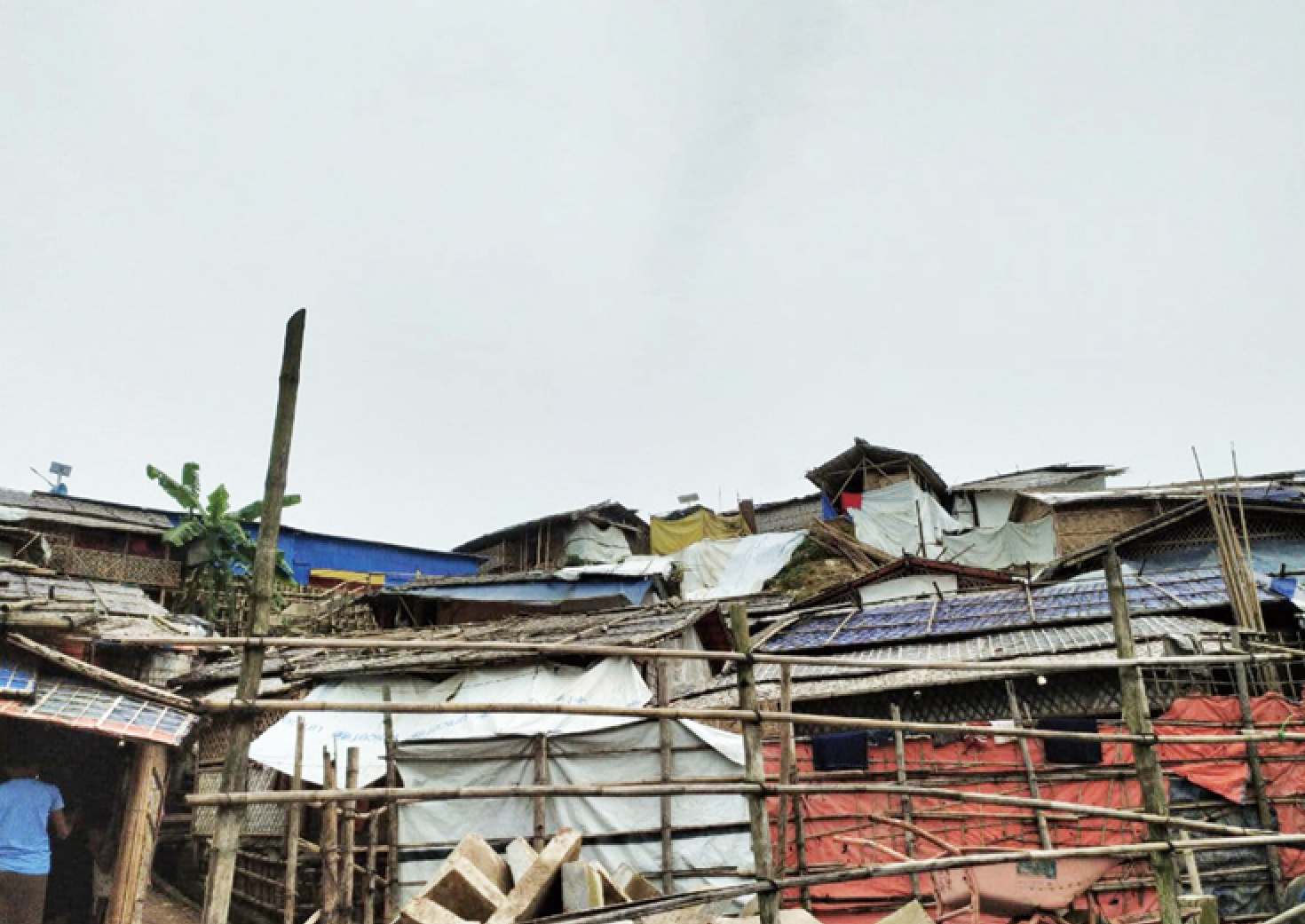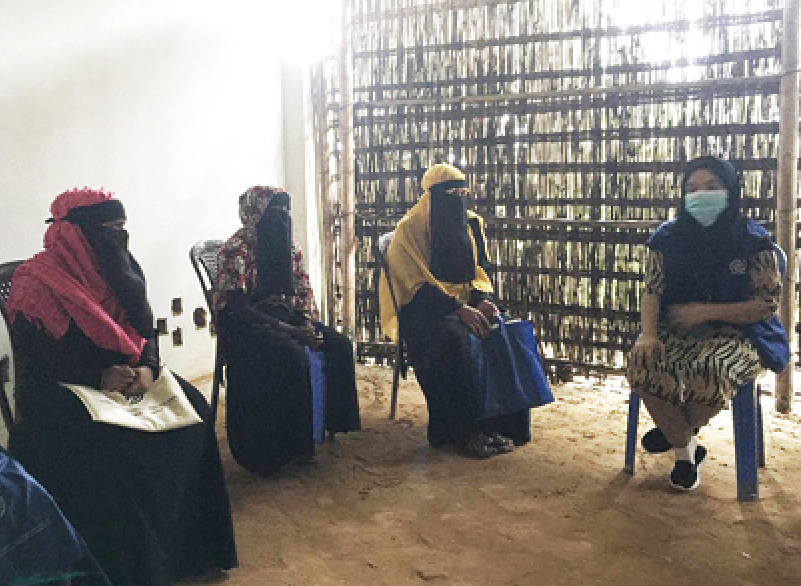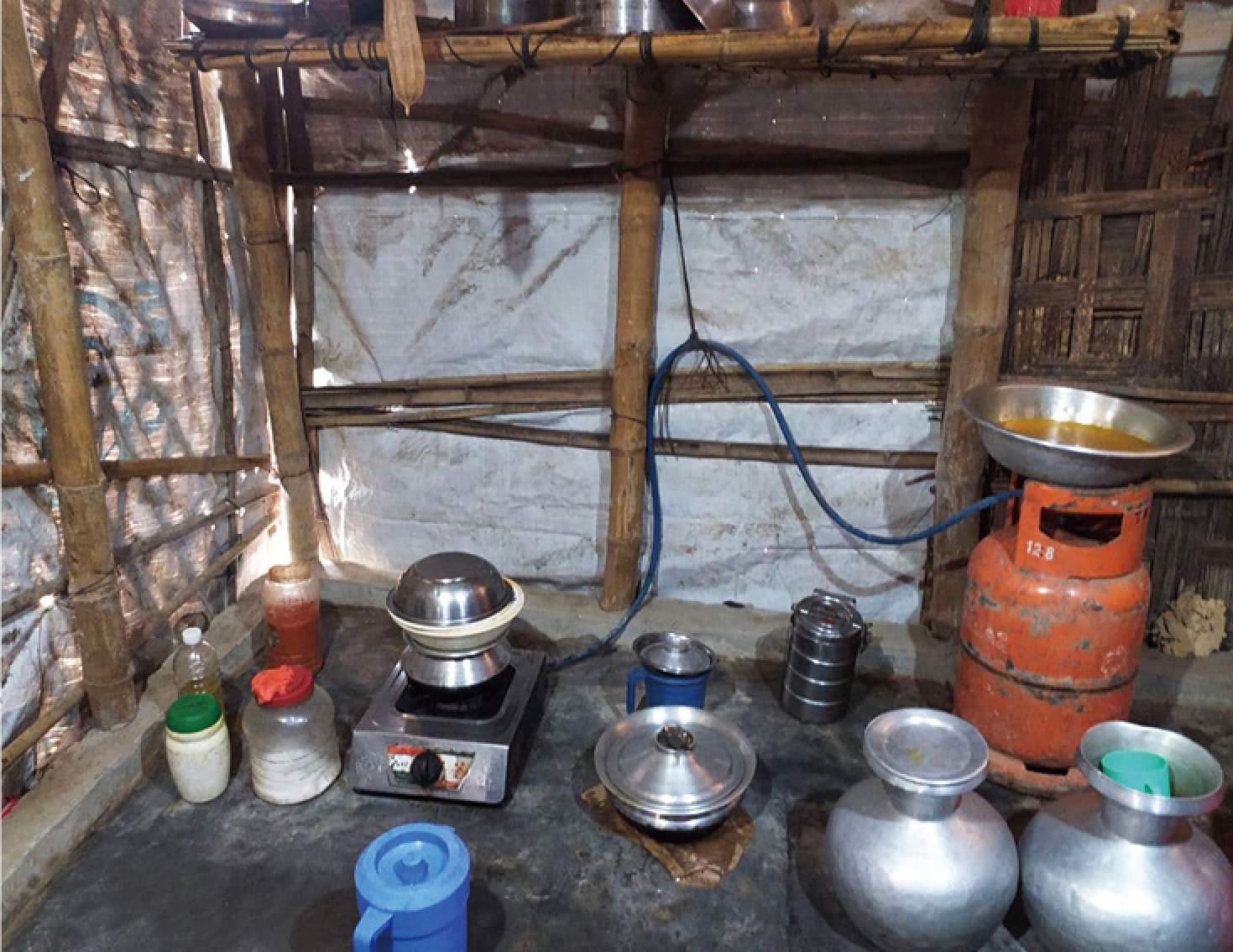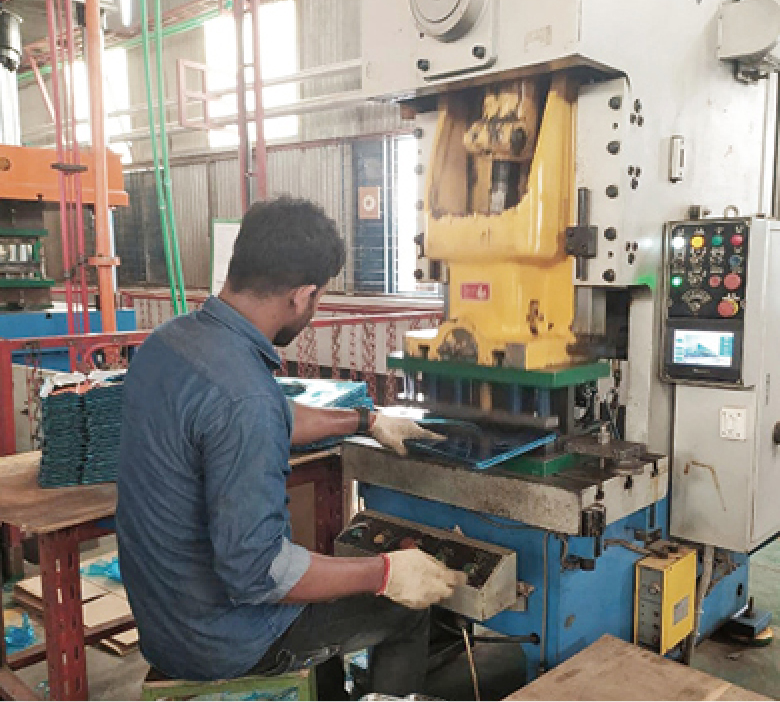JTS, Revisiting the Rohingya refugee camp

Monitoring of the gas stoves that were provided two years ago.
JTS provided 100,000 gas stoves for 500,000 people, a half of Rohingya refugees, in 2019 as well as provided food in 2017-2018 in the Rohingya refugee camp. This visit was to monitor to see if the gas stoves were well used, and to see the feasibility of producing gas stoves in Bangladesh for the next round of support.
Written by Bo-Gwang, JTS India
First day of the visit
At 9:00am, we left where we were staying for our trip to Dhaka. We were supposed to receive our visas at the embassy in the morning and take a 2:00pm flight to Dhaka. When we arrived at the embassy, there were many police officers, soldiers, and reporters with cameras. The door was closed at the embassy.
We were told that there would be a protest in Dhaka and at the embassy because of a Muslim’s murder of a Hindi from India in Bangladesh the day before. We needed to get our visas by 11:30am, but by 11:15am, we still didn’t have them. But our persistence paid off and we were able to get our visas shortly after 11:30am, so we could finally fly to Dhaka. When we arrived at Dhaka at 5pm, it was raining and dark.

Second day of the visit
We headed to the airport at 6:00am. When we arrived at the Cox’s Bazar airport, the WFP (World Food Program) staff was waiting for us. The group, including three WFP staff and the JTS staff, headed to the refugee camp together.
Currently, one million Rohingya refugees residing in the refugee camp in Cox’s Bazar escaped from the oppression of the government of Myanmar. There are 35 districts in the camp. Twelve dollars is provided to each refugee, enabling them to buy essentials. The camp was bigger than we expected, and there were some markets. We saw many closely spaced plastic shelters and impassive people.

At the site of IOM’s (International Organization for Migration) gas stove support project, we interviewed four women who used the gas stoves provided by JTS.
“It’s great to use the gas stove, but after two years of use, it is rusty and does not work well, primarily due to the humidity here. The stove from JTS was better than other stoves, but it is now broken. I want a new one.”
“My children became healthier after using gas stoves, which reduce smoke and dirt resulting from using wood to cook inside. Also, it is great that I don’t need to haul wood from far away.”
We visited the households and observed how they used the stoves.
Our impression of the refugee camp was different this time. Due to the many trees, we could not even see the roofs of houses from above. The staff of the WFP appreciated the support for gas stoves, which has changed the environment here. Children and women did not need to go far to get wood, which enabled them to avoid the danger of sexual abuse. Because they did not remove trees, more trees have grown.

We were very tired in the morning. We wrapped up and headed to Dhaka. We took the COVID-19 test and headed to the traditional market to check the prices of gas stoves. Since Bangladesh is a low-income country, gas stoves are expensive and not common. A manual stove costs 1,250 Taka (15 USD) and an automatic one is around 30 USD.

Fourth day
We visited two gas stove factories. While the first factory was for assembling, the second factory had more diverse production lines, and covered many processes including stamping logos. The capacity of the factory was 16,000 a day and it takes a week to produce 100,000 stoves. We planned to receive an estimate by mail later.
We were supposed to be back to Delhi, India the next day. We confirmed that the gas stoves supported by JTS were well used, and the rusty gas stoves needed to be replaced. We also checked the feasibility of producing gas stoves in Bangladesh and got an estimate for it. We hope this project goes well and enhances the quality of the refugees’ lives.
Epilogue
JTS decided to provide 100,000 gas stoves to the Rohinya Refugee camp in 2022. We will get back to you with other good news soon.
Volunteers:
India: Bo-Gwang, Priyanka, Dong-Pyo Jeong, Ye-Seul Shin
Philippines: Hyanghoon, Sang-Hoon Kim, Si-Hyun Park, Hyung-Joon Kim, Ga-Young Kim


